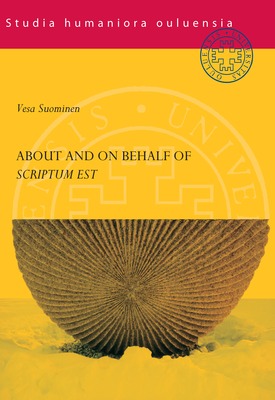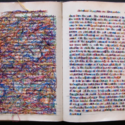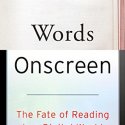Time and the written word have a curious relationship. In order to read something, we must have the written word at hand in the present, but the words must have been written in the past.
This might occur to you when you’re reading a historical document, say, or when you happen across one of your old notebooks. But it characterizes every interaction with the written word that we ever come across. Even online—though the temporal gap is certainly closing in some online forums; though they might purport to be “live,” there is still some delay. And generally, we don’t notice it. This was the theme of an article I wrote in 2016, “Documents and Time,” but there’s much more richness to plumb.
 Lately I’ve been reading Vesa Suominen‘s book About and On Behalf of Scriptum Est, which is a philosophical book about librarianship. Suominen criticizes the majority viewpoint that libraries trade in “information,” arguing instead that libraries deal in documents. Of course, Suominen is not alone; there is a growing constituency of scholars championing the document perspective. But Suominen takes this further, proposing a new concept: scriptum est.
Lately I’ve been reading Vesa Suominen‘s book About and On Behalf of Scriptum Est, which is a philosophical book about librarianship. Suominen criticizes the majority viewpoint that libraries trade in “information,” arguing instead that libraries deal in documents. Of course, Suominen is not alone; there is a growing constituency of scholars championing the document perspective. But Suominen takes this further, proposing a new concept: scriptum est.
Scriptum est is Latin for “it is written.” As Suominen explains, the adoption of this term is metaphorical, coming from the Bible, where the phrase “it is written” refers to something divinely ordained. That is, it couldn’t have not been written. We aren’t meant to interpret the concept scriptum est as a divine one, however; Suominen simply wishes to emphasize that everything that has been written has been written. The concept seems to constellate several things: the past in which the writing was written, the act of writing, the state of this action being completed and the writing’s existence in the presence. As Suominen says:
The very notion of scriptum est particularly serves my concept of the library as a place where there are books that always represent the past.
Regardless of whether the concept of scriptum est is found to be useful in other ways, this aspect of the concept is quite interesting. It’s not that something was written; rather, it is written. Writing is, befuddlingly, an anachronism!
 Follow
Follow

